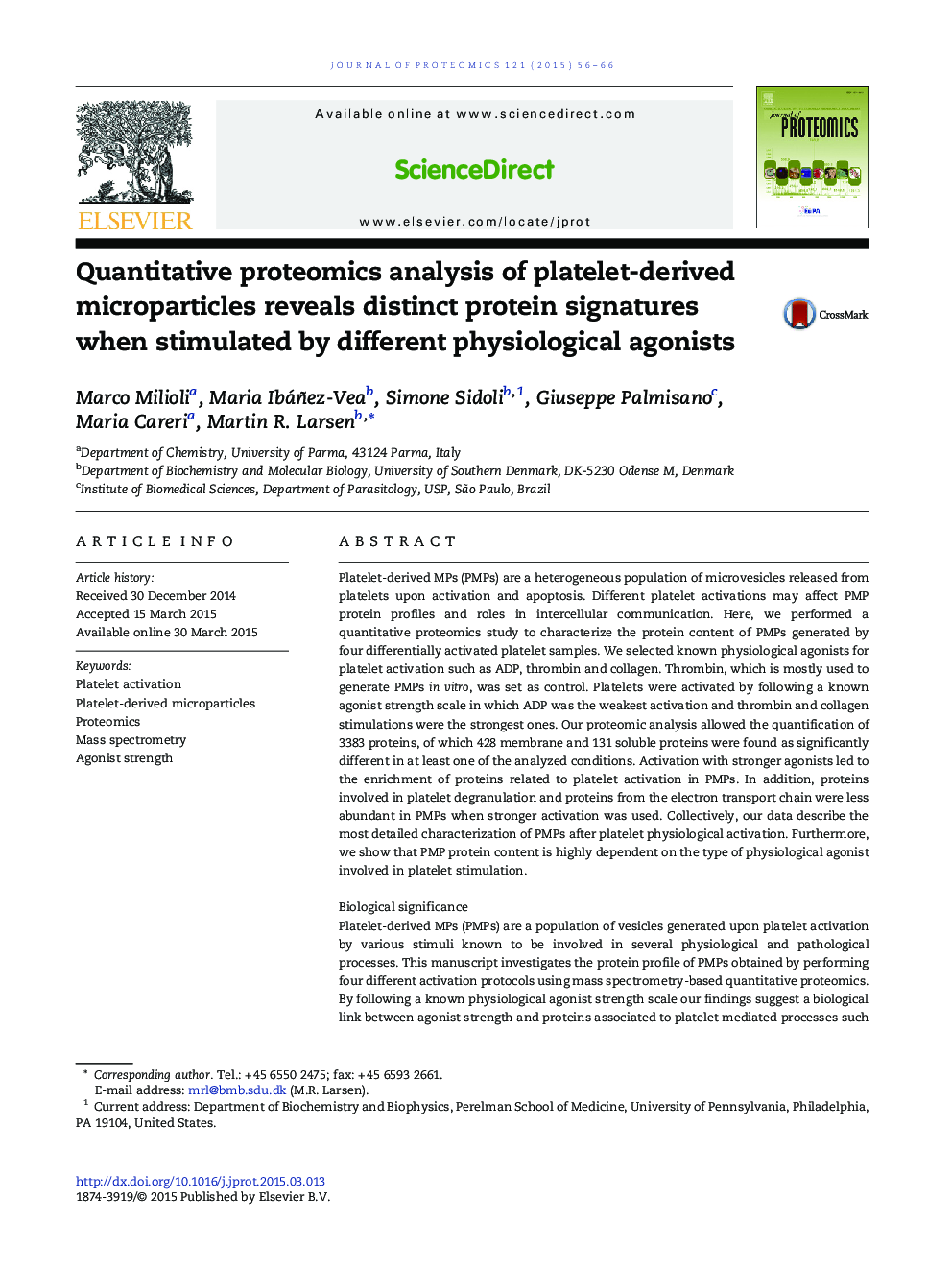| کد مقاله | کد نشریه | سال انتشار | مقاله انگلیسی | نسخه تمام متن |
|---|---|---|---|---|
| 1225428 | 1494759 | 2015 | 11 صفحه PDF | دانلود رایگان |
• We performed an iTRAQ-based quantitative proteomics to characterize PMP proteome.
• PMP protein content was primly related to the agonist used for platelet stimulation.
• High enrichment of proteins involved in a cell communication network was found.
• Platelet activation related PMP proteins were more abundant using stronger agonists.
Platelet-derived MPs (PMPs) are a heterogeneous population of microvesicles released from platelets upon activation and apoptosis. Different platelet activations may affect PMP protein profiles and roles in intercellular communication. Here, we performed a quantitative proteomics study to characterize the protein content of PMPs generated by four differentially activated platelet samples. We selected known physiological agonists for platelet activation such as ADP, thrombin and collagen. Thrombin, which is mostly used to generate PMPs in vitro, was set as control. Platelets were activated by following a known agonist strength scale in which ADP was the weakest activation and thrombin and collagen stimulations were the strongest ones. Our proteomic analysis allowed the quantification of 3383 proteins, of which 428 membrane and 131 soluble proteins were found as significantly different in at least one of the analyzed conditions. Activation with stronger agonists led to the enrichment of proteins related to platelet activation in PMPs. In addition, proteins involved in platelet degranulation and proteins from the electron transport chain were less abundant in PMPs when stronger activation was used. Collectively, our data describe the most detailed characterization of PMPs after platelet physiological activation. Furthermore, we show that PMP protein content is highly dependent on the type of physiological agonist involved in platelet stimulation.Biological significancePlatelet-derived MPs (PMPs) are a population of vesicles generated upon platelet activation by various stimuli known to be involved in several physiological and pathological processes. This manuscript investigates the protein profile of PMPs obtained by performing four different activation protocols using mass spectrometry-based quantitative proteomics. By following a known physiological agonist strength scale our findings suggest a biological link between agonist strength and proteins associated to platelet mediated processes such as activation and degranulation. These data may provide new insights for understanding PMP biological role and formation.
Figure optionsDownload high-quality image (97 K)Download as PowerPoint slide
Journal: Journal of Proteomics - Volume 121, 21 May 2015, Pages 56–66
